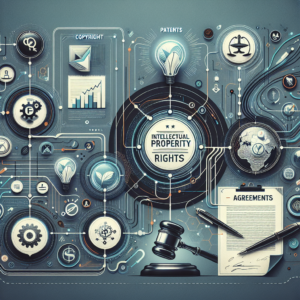Revolutionizing Legal Practices: The Shocking Rise of New Legal Templates

In an era defined by rapid technological advancements and shifting consumer expectations, the legal profession is undergoing a significant transformation. The rise of legal templates has emerged as a game-changer, offering a new approach to legal documentation that promises to enhance efficiency and accessibility. This article explores the implications of this trend, examining how legal templates are revolutionizing practices within the legal field and reshaping client interactions.
Understanding the Shift: The Emergence of Legal Templates in Modern Law Practices
The emergence of legal templates marks a pivotal shift in modern law practices, driven by the need for increased efficiency and accessibility. Traditionally, legal documentation has been a time-consuming and often costly process, requiring extensive customization for each client. However, the advent of standardized legal templates has streamlined this process, allowing legal professionals to produce documents quickly and accurately. These templates, which cover a wide range of legal needs—from contracts to wills—are designed to be adaptable, enabling lawyers to provide tailored solutions without starting from scratch. As clients demand faster services and more transparent pricing, the adoption of legal templates is becoming a strategic necessity for law firms seeking to remain competitive in a rapidly evolving marketplace.
The Benefits of Legal Templates: Efficiency, Consistency, and Cost-Effectiveness
Legal templates offer a multitude of benefits that enhance the overall efficiency of legal practices. One of the most significant advantages is the ability to produce documents quickly, which reduces turnaround times and allows lawyers to focus on more complex legal issues. Additionally, the use of standardized templates ensures consistency across documents, minimizing the risk of errors and omissions that can arise from manual drafting. This consistency not only bolsters the credibility of legal practitioners but also fosters trust with clients. Furthermore, legal templates can be a cost-effective solution, as they lower the time spent on routine documentation, ultimately translating to reduced fees for clients. As a result, both clients and law firms stand to gain from the increased efficiency and reliability that legal templates provide.
Analyzing the Impact: How Legal Templates are Transforming Client Interactions
The rise of legal templates is fundamentally transforming the way lawyers interact with their clients. With the ability to generate documents swiftly, lawyers can engage in more meaningful conversations with clients, focusing on strategy and advice rather than getting bogged down in paperwork. This shift enhances the client experience, as clients appreciate the transparency and speed with which their legal needs are addressed. Moreover, the availability of templates empowers clients to take a more active role in their legal matters, as they can access and review standardized documents before consultations. This collaborative approach not only strengthens the lawyer-client relationship but also fosters a sense of empowerment among clients, who feel more informed and involved in the legal process.
The Role of Technology: Digital Platforms and Their Influence on Legal Templates
Technology plays a crucial role in the proliferation of legal templates, with digital platforms facilitating their creation, distribution, and customization. Online legal service providers and document automation tools have emerged as key players in this space, offering user-friendly interfaces that allow both legal professionals and clients to access a wide array of templates. These platforms often include features such as guided questionnaires that help users tailor templates to their specific needs, ensuring compliance with relevant laws and regulations. Additionally, cloud-based storage solutions enable easy sharing and collaboration on legal documents, further enhancing the efficiency of legal practices. As technology continues to evolve, it is likely that the integration of artificial intelligence and machine learning will further refine the development and application of legal templates, making them even more adaptable and user-friendly.
Challenges and Considerations: Navigating Compliance and Customization in Legal Templates
Despite the advantages of legal templates, there are challenges and considerations that legal practitioners must navigate. One of the primary concerns is ensuring compliance with jurisdiction-specific laws and regulations, as a one-size-fits-all approach may not be suitable for every situation. Legal professionals must remain vigilant in customizing templates to reflect the unique legal landscape of their clients' needs while maintaining the efficiency that templates provide. Additionally, there is the risk of over-reliance on templates, which could lead to a decline in critical thinking and legal analysis if lawyers become too dependent on standardized solutions. To mitigate these risks, legal practitioners must strike a balance between utilizing templates for efficiency and applying their expertise to ensure that each document meets the specific requirements of their clients.
The Future of Law: Predictions for the Continued Evolution of Legal Template Usage
Looking ahead, the use of legal templates is poised to continue its upward trajectory, driven by ongoing advancements in technology and changing client expectations. As law firms increasingly embrace digital transformation, the integration of artificial intelligence and machine learning into template creation and customization is likely to become more prevalent. This evolution will enable lawyers to produce even more sophisticated and tailored documents while maintaining efficiency. Additionally, as clients become more tech-savvy and demand greater transparency, the legal industry may see a rise in self-service legal platforms that empower individuals to create their own documents using templates. Ultimately, the future of legal practices will likely be characterized by a hybrid model that combines the efficiency of templates with the personalized touch of legal expertise, creating a more responsive and accessible legal landscape.
The rise of legal templates signifies a transformative moment in the legal profession, offering a pathway to greater efficiency, consistency, and client satisfaction. As technology continues to evolve and reshape the landscape of legal services, law firms must adapt to these changes to remain competitive. By embracing the potential of legal templates while navigating the associated challenges, legal practitioners can position themselves for success in an increasingly dynamic environment. The future of law is not just about templates; it is about leveraging innovation to enhance the practice of law and better serve clients in an ever-changing world.